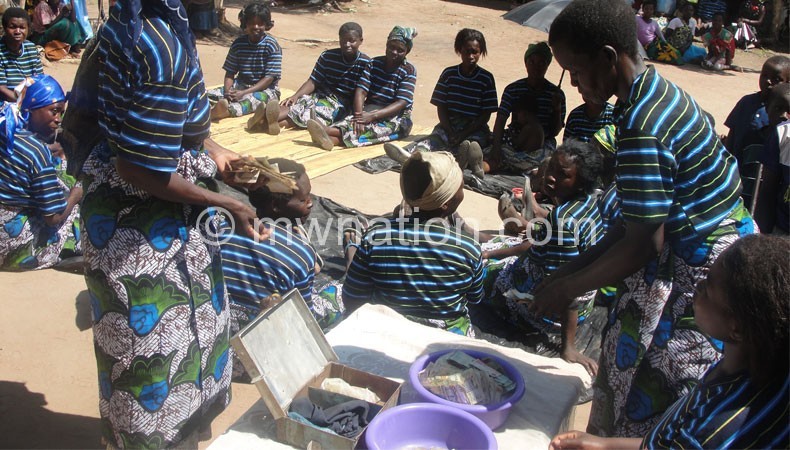Sweeping poverty from home

It is said when poverty enters through the door, love escapes through the window. This might explain why some poor parents engage their children in child labour—sending them to work in tobacco or tea estates.
For such children, education is a far-fetched dream.
However, it becomes a good story when a parent confesses how poverty influenced them to push their children into child labour only to realise that what they were doing was wrong.
That is the story of Naomi Kachuma of Kwayera Village, Traditional Authority Kalumo in Ntchisi.
Sitting next to one of her goats, 34-year-old Kachuma recalls the days she felt the biting jaws of poverty, the callous beast that has made the majority of her fellow Malawians living on less than a dollar a day to take desperate measures to survive.
Kachuma was divorced three years ago and took up the responsibility of taking care of her two children. However, she could not support their education as she had no means of earning a living.
Her children, a boy and a girl, ended up working in nearby tobacco estates. While their friends were going to school, the two children were busy plucking tobacco to earn small perks and put food on the table.
“I knew the importance of school for children, but what could I do? I had no money to help my children with school resources,” says Kachuma.
She says she even lacked basic necessities such as salt and matches for her home. But now her life has taken a turn for the better.
Without financial support from her husband, she is now able to support her children’s education. She feeds and dresses them well.
But what has happened to the once poor woman?
“It is not a miracle. This has happened through hard work and also due to my membership to a village savings loans (VSL) group called Chiyanjano,” Kachuma says.
She attributes the positive development to Child Labour Elimination Actions for Real Change (Clear) project by Save the Children. The project, which mainly focuses at overcoming child labour, encourages villagers to start VSL groups in which they contribute money sthat is borrowed when they need it. The members pay back the money with an interest of 20 percent. At the end of the year, they share the money and start all over again the following year.
“I use profits from my shares in the VSL, also known as Banki Mkhonde, to buy school resources for my children. Last year, I got K21 000 as total profits after investing K10 000. This year I expect to make more money than last year,” says the energised Kachuma.
This is where she gathers optimism that her dream to run a bigger business such as selling of second hand clothes will come true.
Clear project manager Arkangel Bakolo says the Banki Mkhonde has transformed lives of women in Kwayera Village.
“Save the Children, together with other organisations, is implementing this project so that parents are able to remove their children from estates and send them to school. Many parents claim that they expose their children to child labour because they do not have money and food for the children, therefore, Clear empowers villagers to have a means of finding money to feed and educate their children,” says Bakolo.
Through Banki Mkhonde, Kachuma has managed to buy some goats.
“I have also moulded bricks and I am planning to build a good house,” she says.
Kachumao does not only aim at being able to feed, educate and accommodate her children, she also wants to be rich someday.
But she has one worry: “I dropped out of school in Standard Eight at Mafosha Primary School. Therefore, it becomes difficult for me to do some business transactions. That is the only challenge for me.”
The Southern Africa Development Community (Sadc) Gender Protocol 2013 Barometer by Gender Links says one of the challenges to economic empowerment of women and other marginalised groups is limited economic literacy. This has kept women out of the formal economy.
Kachuma works hard to earn a living although she says it is not easy for her, being a woman, to be trusted by people in her village.
Despite this, Kachuma says she will continue working hard.
“All my children are at primary school. But I know someday they will be at secondary school and later they will go to college. Education requires a lot of money. That is why I am working hard to make and save more money,” she says.





